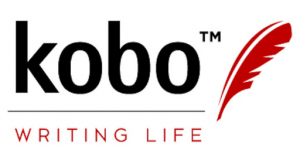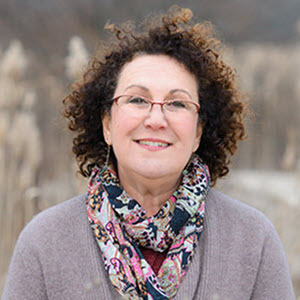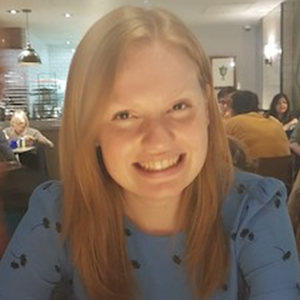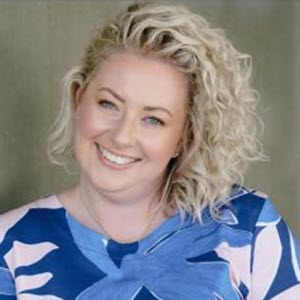This year, you’ll be able to pitch our fab editors and agents digitally over Zoom, in the week or two following the conference.
We have a great lineup of agents and editors this year, with more names to be announced. Spots are limited, so book in early because, while we’ll do our best to try to get you in to all your top choices, pitches are first in, first served.
To pitch, you’ll need to have either a full manuscript, or be an experienced author with a proposal.
I’ve never pitched before, what do I do?
After the details of the pitching line-up (below) there is a guide with links to help you with your preparation. RWNZ recommends reading Kristin Nelson Agent’s blogs on pitching. The key thing to remember is these great people are wanting to love your book as much as you do. Read more about pitching here….
The Pitching Line-Up
- Agent – Jim McCarthy – Vice-President, Dystel, Goderich & Bourret LLC (FULLY BOOKED)
- Editor – Deb Werksman – Editorial Director, Sourcebooks
- Editor – Johanna Baker – Harlequin AUS
- Agent – Lizzie Poteet, The Seymour Agency
- Editor – Hannah Rossiter, Harlequin UK
- Agent – Danielle Binks, Jacinta di Mase Management
Jim McCarthy
Jim McCarthy is an agent and vice president at Dystel, Goderich & Bourret, where he’s been for 20 years. He represents adult, young adult, and middle grade, both literary and commercial, and is particularly interested in literary fiction, underrepresented voices, fantasy, mysteries, romance, anything unusual or unexpected, and any book that makes him cry or laugh out loud.
What I’m looking for:
YA or MG in any category, commercial women’s fiction, contemporary romance, paranormal romance, urban fantasy
Deb Werksman
Deb Werksman has been at Sourcebooks for the past twenty-three years, before which she had her own publishing company. She is the editorial director of romance fiction and acquires single title romance in all subgenres, romcom, uplit, and romantic women’s fiction. Sourcebooks is the country’s largest woman-owned independent publishing house. We’re known for our sales and marketing, as well as our focus on building authors’ careers.
I’m looking for:
- Single title full-length romance fiction (80,000 words and longer)
- Romantic women’s fiction
- Romcom
- Uplit—women’s fiction with a happy ending that’s not necessarily romance
Hannah Rossiter
Hannah Rossiter is the Associate Editor for the Harlequin Medical and Romance series, joining the team in 2018. Hannah fell in love with love at the age of eight, when her grandma sat her in front of the TV, and they watched Pride and Prejudice together – the Colin Firth version, of course! Hannah was led, by her love of romantic fiction, to study English Literature at the University of Southampton – she left, during her time there, no book unturned! – and then, landed her dream job at Harlequin. Every day at True Love Towers – a.k.a. Harlequin HQ – is different, but Hannah is passionate about acquiring fresh, exciting new voices for the Harlequin series.
What I’m looking for:
Hannah would love to take pitches targeted at:
– Harlequin Historical
– Harlequin Medical Romance
– Harlequin Presents
– Harlequin Romance
Johanna Baker
Johanna started her career in publishing seven years ago and now works at HQ, where she commissions romance for digital and print. There’s nothing she loves more than compelling genre fiction with a well-executed trope and a happy ending. She is keen to acquire more authors, and particularly enjoys working with rising-stars to develop their manuscripts.
Looking for
a wide range of romance that represents all sectors of society, such as Talia Hibbert’s Get a Life, Chloe Brown or Morgan Roger’s Honey Girl; clever romantic comedies such as Beth O’Leary’s The Flatshare; and fast-paced romance with beautifully realised tropes such as my author Alyssa J. Montgomery’s Five Dates with a Billionaire.
What is the minimum word-count your agency takes, or your publishing house requires?
Category length (45k-55k)
What sub-genres or genres are you not looking for?
I’m not currently acquiring non-fiction, fantasy, science fiction, paranormal or YA romance.
Is there a genre or sub-genre you’re particularly keen to see?
I am passionate about own-voice romance: differently abled heroes and heroines, queer love stories, and characters of all ethnicities. I particularly enjoy contemporary romance, everything from romantic comedies to billionaire romance, and also love romantic suspense and cop romances.
What genre is your personal favourite?
I have a particular soft sport for romantic comedy, especially ones that feature characters who are dealing with complex issues beyond just finding love.
What is your major turn-off in a book?
When the only thing keeping a couple apart is miscommunication! It’s far more interesting when there are actual stakes involved preventing our OTP from being together.
What is likely to really knock your socks off beside an engaging voice and well-written book?
Any story where the characters’ experiences feel authentic, or stories that have expertly executed a well-loved trope (forced proximity, enemies to lovers and grumpy/sunshine are just a few of my personal favourites!).
Any advice to your potential pitchers?
Alongside your plot summary, I want to hear about why you wrote this particular story, and why you think your readers will love it!
Danielle Binks
Danielle has been with Jacinta di Mase Management since 2016, and while she initially joined with a mind to expanding the Middle Grade and Young Adult list, she is now an agent that represents all manner of creatives across Youth Literature, Adult Fiction and Non-Fiction (and even graphic novels, of late!)
What I’m looking for:
Interested In: YA, MA, Contemporary romance, historical and chick lit
I do love contemporary romance (Mhairi McFarlane, Sally Thorne, Helen Hoang, Lyssa Kay Adams, Kim Lock, Jasmine Guillory, Kylie Scott, Talia Hibbert, and Alice Clayton). My heart always comes back to historical (Kerrigan Byrne, Tessa Dare, Alyssa Cole, Lisa Kleypas, Elizabeth Hoyt, Joanna Shupe). I adore young adult romances done right (I represent the likes of Kay Kerr, Jenna Guillaume and Sara Haghdoosti – so yes, total sucker for a great YA romance!). And I like more literary “chick-lit” romances too (Toni Jordan, Emily Henry, Beth O’Leary, Taylor Jenkins Reid, and Katherine Center etc.) On the paranormal/urban fantasy more genre front, I won’t deny they’re harder to get up in Australia but if I was to come across something that hit the right note, I’d love to champion (I’m obsessed with; Ilona Andrews, Brigid Kemmerer, Patricia Briggs, Laura Thalassa, Amanda Bouchet, and Thea Harrison.)
PITCH PREPARATION
A pitch is like a particularly short and pleasant job interview and as such needs approaching in the same way.
Firstly, research the people you are pitching to. What books have they recently published? Who do they represent? How does your book fit in with their current stable? Check them out on Twitter, Facebook and their websites for answers. Google is your friend.
You then need to be able to sell your book. You need to convey what the story is about, how it fits with them/their line and what makes it special and sets it apart from other competing works of fiction. Think of the back cover blurb – exciting, emotive and brief. It should cover your main characters, their conflicts and the plot. Take in prompt cards to help you, but make sure you’ve practiced your opener to the cat, baby or any other writers you can bribe with a coffee or reciprocal arrangement. It will make it easier to present if you’re nervous on the day. Make sure you’ve also got a blurb on what sells you, so if you are asked about yourself you know the best things to say. A professional, but friendly approach to the pitch will have you well on your way.
Here’s some advice from Kristin Nelson (Nelson Literary Agency)
When writing your pitch paragraph, all you need to do is examine the first 20 or 50 pages of your manuscript. Then zero in on the main catalyst that starts the story forward—the main conflict from which all else in the novel evolves. It’s the catalyst kernel of your story that forms your pitch.
What you need to remember is that your pitch paragraph needs to read like the back cover copy of a novel. Notice that when you read the back cover of a book, it just gives a hint or a teaser of the story and that it also usually focuses on a crucial early event in the novel. That gets the ball rolling.
And the back cover copy of a book never reveals the ending—and neither should your pitch paragraph. After all, if I want to read the entire novel, I don’t want to know the ending beforehand.
So what I suggest is that you go to your local library or bookstore and browse the section that holds the novels comparable to yours (i.e. if you are writing a thriller, look at thriller novels. If you are writing a paranormal romance, read the back covers of other paranormal romances. If you write literary fiction, read the back cover copy of literary works and so on).
You want your pitch paragraph to mirror that same sort of rhythm and content of those back cover examples. After all, that copy was written by experts and analysing how the experts create enticing copy can only help you to write yours.
There are great guides online from other writers.
Jane Friedman: The Basic Pitch Formula
Or Google away. Please note that RWNZ conduct pitches slightly differently to those sometimes held in the States so don’t panic if other pitching advice mentions things that sound left field.
Pitch Etiquette
If you need to change anything or the pitch coordinator has made a mistake, let them know as soon as possible. RWNZ wants to maintain our professional reputation with the agents and editors and so wishes to minimise changes at the conference itself, but changes are better than just not showing up.
Please be very respectful of the amount of time you have to pitch. There is not time between the pitch sessions for anyone to run late.
Please arrive for your pitch appointment time 5 minutes early and leave your session as unobtrusively as possible. A chair closer to the exit might be a good idea for that particular session.
Don’t get too nervous. All of the editors and agents at the conference are LOVELY and will be used to meeting first-time pitchers. Think of it as an opportunity to have an enthusiastic conversation about your book with a like-minded individual. It’s a long way to New Zealand and they are coming because they WANT to find the brightest and the best new manuscripts here. You are bypassing the slush pile. It’s all good!
Follow through after the conference. If you are asked to send something, that’s great! Make sure you undertake all agreed actions in a timely manner.
Our Sponsors
RWNZ would like to thank our sponsors.







